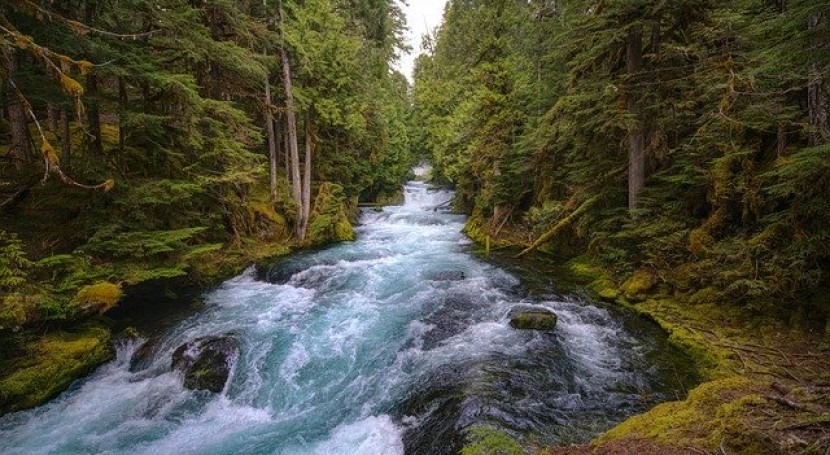What is a river?

The amount of water in rivers is only a small portion of the total amount of water in our planet.
1 . Definition of river
A river is a natural stream of water that flows from its source until its mouth, where it flows into another river, a lake or the sea. A river's discharge will vary depending on the part of the river, and it can receive water from different sources:
- Precipitation.
- Surface runoff.
- Springs and seepage water.
- Water from snowmelt in areas with snow and glaciers.
2 . What are the parts of a river?
A river has three parts:
- Upper course: it is the part where we find the source of the river (usually in areas with a certain elevation), and usually it has fast-flowing water. In this area there is a lot of erosion and transport.
- Middle course: the part where the river widens and the gradient decreases. There is a lot of erosion, transport and sedimentation.
- Lower course: this is where the gradient is gentlest and the water flow is slowest. The sediments transported by the river are deposited and in its mouth the river may form an estuary or a delta as large alluvial deposits are created.
3 . Formation of rivers
In mountainous and hilly areas, rainwater flows and concentrates in lower areas, which fill up to form lakes. Afterwards, the first channels are formed, quickly eroding through the land with the strength of the flow and the sediment carried by the water. A young river or primary fluvial system forms, which gradually erodes a deeper channel. Finally, when the river flows through lowlands, the channel will erode the outer banks of bends, depositing sediment and generating a flood plain, until it reaches its mouth.


